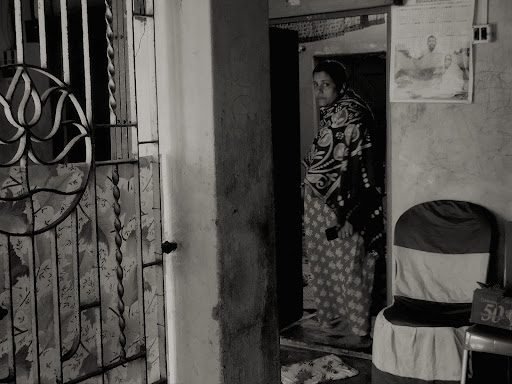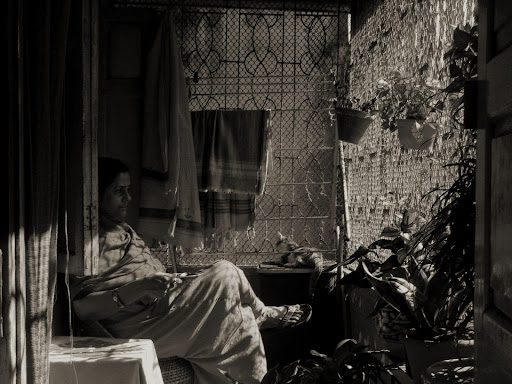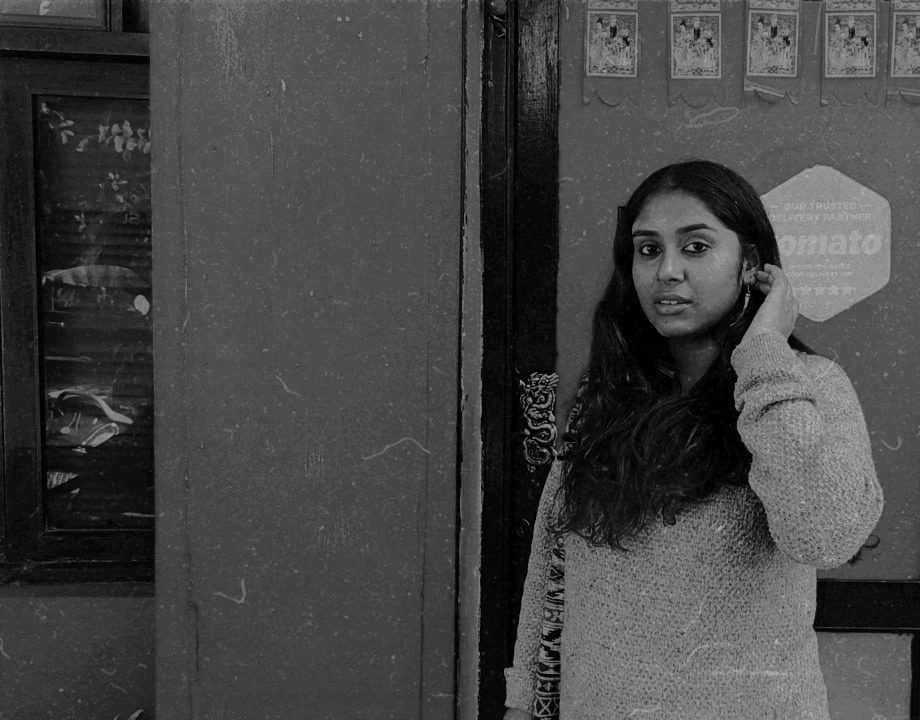This is going to be an unstructured reflection on food, gender, culinary cultures, and interconnected histories of violence and remembering. It is perhaps in the most mundane, routine instances that memory befalls us, and also the most routine ways in which it fails us. And what is a more silent, routine space than the household kitchen, with its manifold constructions and reconstructions of power and resistance; that near-invisible corner of the house holding and harnessing the profit of unpaid domestic labour through the unaccounted sweat of women across times and borders? But it is also that same kitchen space where we find some of the most sustained examples of women’s agency, their food and the numerous stories they yield- hitherto gone undermined, unnoticed, unrecorded.
My own relationship to the food in my middle-class household has been somewhat contentious. Growing up in the joint setup of a refugee household, resettled post-partition from East Bengal, my primordial memory of food was always marked by a sense of bitter nostalgia, but an uncompromising extravagance all the same. My family wasn’t one with immense generational wealth, but whatever money my grandfather accumulated in his life, he made sure it was well utilised to provide appetizing meals for the family for as long as he lived. Forced to leave his land but not his eating habits, he carried the compulsion of gastrological abundance to this side of the border. Therefore, while never having experienced it directly myself, I was never deprived of the feeling of extensively arranged, painstakingly prepared daawats and the quintessential hospitality of Bangladeshi culture in my own house. The disproportionate onus of preparing these meals, however, fell on the women of the household. My mother was never overtly fond of cooking, even as she had a natural talent for it. Therefore, crafting each of the many food items according to the impeccable standards of my grandfather remained quite a demanding task for my mother. Lunch time at the family table came to be marked by anxious trepidation and the fear of sharp reproach if the food was not cooked to yield the exact precision of flavours.

Paul, Anuska. Photograph of mother in her maternal house. 30 Nov. 2023. Author’s personal collection.
The gastrological exactitude of the typical East Bengal refugee (Bangal) co-existed with a practice of preservation that turned into edible delicacy anything and everything. Successive histories of famine and partition as a result of colonial violence had created conditions where Bengalis had to survive on very little food and on whatever they could gather. This is how roots, shoots, leaves, tubes entered the Bengali culinary culture and continue to play an integral part in it. Not only that, the one-of-a-kind dish called khosha bata, a kind of makeshift dish prepared from the peels of any and all vegetables, not discarded but carefully hand ground with hefty amounts of garlic and dry red chilies, while slowly vanishing from the consciousness of next generation Bengalis in the midst of a globalized food market and mass consumption, is still invoked with a kind of aching nostalgia.
I’ve seen this practice of culinary subsistence, which is perhaps more of an acquired habit than an innate quality, very gendered in nature, and having its root in gender and economic conditions of poverty, manifested in my mother. Scraping the last bit of food off the plate, her approach to food is gentle, careful, and intimate, one distinct from my grandfather’s fussy love. Growing up in a huge family with seven other siblings and numerous other paternal cousins, my mother was fostered in a culinary environment where my maternal grandparents had to be stringently calculative about their bazaar purchases. Naturally, my mother came to harbour an unmatched love for shaak and vegetables, which was consumed in whooping proportions as compared to the meagre servings of protein in the form of fish and meat. Even today, she prides herself in being able to finish platefuls of rice only with some dal and sabzi. But it is not simply about the items that were cooked, but also about the way they were prepared. A minimal number of ingredients were whipped up to produce the most delectable items with unique flavours. My own favourite among my mamar bari (maternal house) dishes was a simple preparation of masoor dal prepared using generous amounts of nigella seeds and dry red chili as tadka spread out over boiled dal. On one of my monthly visits to my grandparents’ house, I could witness to the heavenly aroma of this dish cooked by my grandmother which stays with me even today on my lowest days alongside that quintessential yearning for a long-lost childhood so universal as if to the human race.
With the passing of the older generation, everyday culinary routines in the household began to evolve to meet my preferences as the single child of the household. As I grew up, my parents were forced to give in to my culinary preference for meat over vegetables. My mother’s indiscriminate love for vegetables took a back seat as did her appetite for pond fish such as koi, shing, and magur, whose smell was somehow repugnant to me. While this difference still exists, the recent past has however opened up before me a different culinary world hitherto unexplored. After tasting shutki (dried Bombay duck) at a friend’s place, I was blown away by its flavours and considered it almost criminal that such a dish had not been prepared at our house despite our Bangal ancestry. My parents were therefore quite taken aback when, armed with half a kilo of this dried fish and some basic spices, I managed to whip up quite an edible mix of shutki bharta. When asked why my mother hadn’t cooked this as I was growing up, despite her evident love for it, I was met with a profound silence I could not quite gauge at that time. She later confessed in private that she had practically forgotten the existence of her many favourite dishes from her childhood from never getting the opportunity to cook for herself.

Paul, Anuska. Photograph of mother in the veranda. 1 Dec. 2023. Author’s personal collection.
I am acutely aware of a certain paternal lineage, of its histories of resilience against partition-induced violence, of the many ways my identity is linked to the struggles of my fathers and forefathers. But what about my mothers? In my recent tryst with food, I was compelled to ask myself why is it that our ideas of roots are always paternal? Why is it that my mother was denied the mere memory of the food of her childhood and therefore also an intimate familial, maternal legacy? Why is it that her own relationship to food remained unexplored and eternally mediated, first through the presence of paternal male figures and then her husband and own daughter? Why is it that despite her aversion to cooking, she had to cook meals for her family all her life while dispelling the need to cook her own favourite dishes? It is only now, when she is nearing old age, that I see her enjoy elongated moments of leisure, nibbling at her favourite fruit while sitting in the veranda under the winter sun. As I sit documenting her, I like to imagine a future when our maternal histories would be less precarious and our strivings to reach them less laden with epistemic hindrances.
Anuska (she/her) is an independent researcher and activist. She completed her post-graduation in 2022 from Jadavpur University, Kolkata. Her research interests include spatiality studies, culinary cultures, political and subversive life writing, histories of women’s movements and alliances in the Global South, and urban studies.

Subscribe to our newsletter To Recieve Updates
Join our newsletter to receive updates